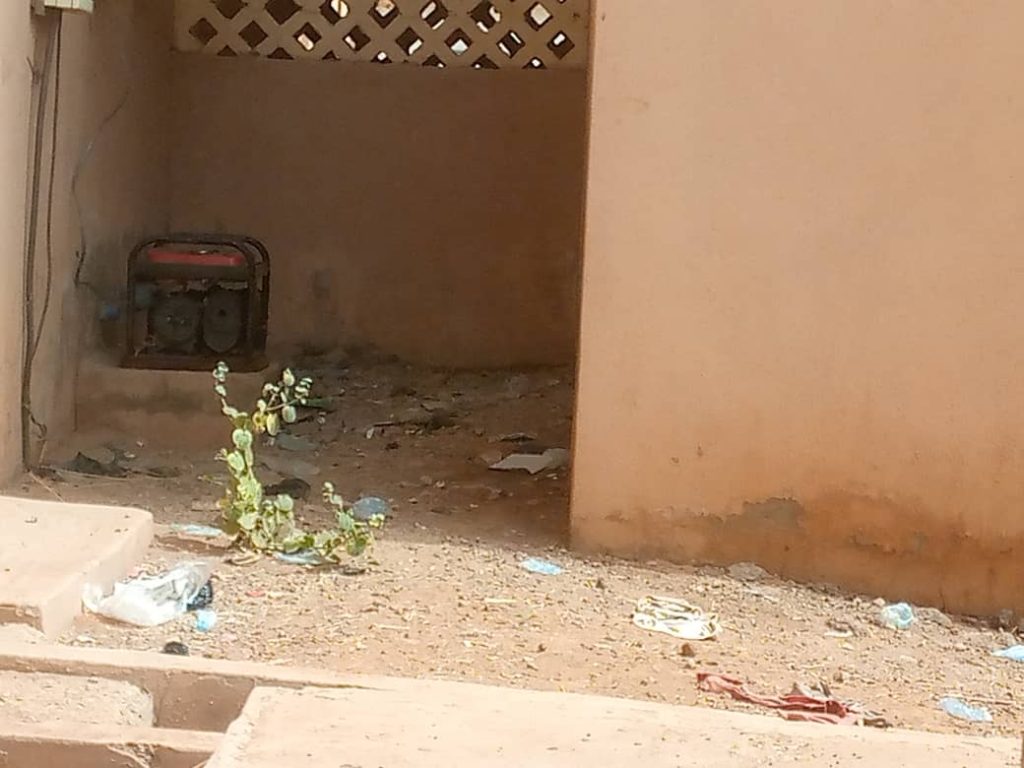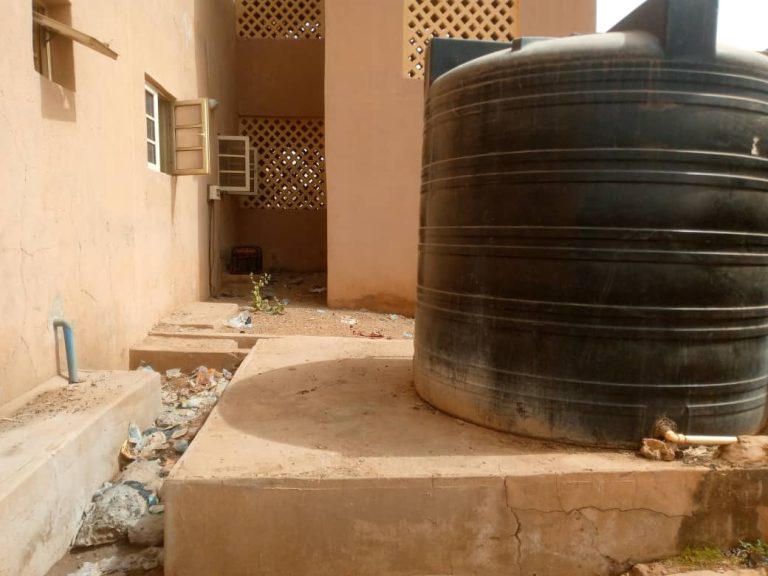In the early hours of Tuesday, March 19, 2024, Sulaiman Rahmah Oba, a 100-level student of Pure Chemistry at Usmanu Danfodiyo University Sokoto (UDUS), embarked on what she hoped would be a routine morning.
With her morning lecture scheduled for 8:00 am, Rahmah rose before the sun, eager to begin her day. Her first stop was the university mosque, where she intended to collect water from the nearby reservoir for her morning bath.
To her disappointment, the reservoir was empty, the silent evidence of the ongoing water scarcity plaguing the university community.
Rahmah proceeded to another hall of residence, where she encountered fellow students already queued in desperate pursuit of water. Joining the line, she waited patiently, only to have her hopes dashed as the water supply was cut off just as it reached her turn.
Rahmah felt very sad about it because she couldn’t get water for her daily needs which made her miss the morning class. “This is not the university life we watched in movies”, she complained.
A final-year student of Education Chemistry, Abdullah Habeebat recounts her ordeal of navigating the university’s water shortage.
“I was opportune to get water to bathe in the morning but when I got to the hostel in the evening, I asked my roommates if they could help me get water and the reply I got made me devastated. I was told that there was no water in the hostel.”
On that day, Habeebat could not get water to cook to break her fasting, “I had to settle for bread and soft drinks and bought two bags of water to cook for the next day and also to clean myself.
“This experience is making the hostel not conducive for living because students find it difficult to flush toilets and the cleaners do not see water to clean it. This leaves the hostel environment in a deplorable state of sanitary conditions.”
For Rahmah and Habeebat and countless other students at UDUS, the scarcity of water has become more than a mere inconvenience—it is a daily struggle that disrupts their lives and undermines their academic pursuits.
As they navigate the challenges of accessing clean water for drinking, bathing, and sanitation, these students grapple with the harsh realities of university life in a community besieged by a fundamental lack of this essential resource.
Water scarcity has become a pressing issue within the Usmanu Danfodiyo University Sokoto (UDUS) community, significantly impacting its students’ well-being and academic pursuits.
The university, established in 1975 during the military regime of General Muritala Muhammad, finds itself entangled in the global crisis of inadequate access to safe drinking water, as highlighted in a 2020 report on Sustainable Development Goals (SDGs).
Water is a fundamental human need that each person on earth requires for daily needs such as drinking, cooking, washing, and keeping themselves clean.
In 2010, the UN General Assembly recognized the human right to water and sanitation.
Everyone has the right to sufficient, continuous, safe, acceptable, physically accessible and affordable water for personal and domestic use.
Read Also: UN: 2.2bn people lack clean drinking water
Regardless, water scarcity has been a major challenge that Usmanu Danfodiyo University students have been battling with for several years.
The issue was worsened when the Non-Academic Staff Union, NASU and Senior Staff Association of Nigerian Universities, SSANU embarked on a 7-day warning strike from Monday, March 18, 2024.
The unions refused to supply the students with water and other basic needs as they stopped their duties.
Students exhausted most of their time that could be used productively on academics to struggle to fetch water.
The situation of queuing for long and water not getting to some students’ turn on time used to lead to fights among students. Some engage in an argument while some will even attempt to change others in the queue.
Water is Important For Public Health — Says WHO
The World Health Organization published that safe and readily available water is important for public health, whether it is used for drinking, domestic use, food production or recreational purposes.
Improved water supply and sanitation, and better management of water resources, can boost countries’ economic growth and can contribute greatly to poverty reduction.
Stakeholders Taking Actions
The management of the varsity used to send automobile reservoirs to dispense water to students residing in school halls of residence but the water cannot satisfy the number of students living in the campus.
The Leader of the Students’ Union Caretaker Committee SU-CTC of the university, Comrade Abdullahi Sanusi is taking action to provide water for students.
The union is fuelling a generator to pump water for students residing at Bakassi hostel but it is not reaching other students at Jubril Aminu hostels.



